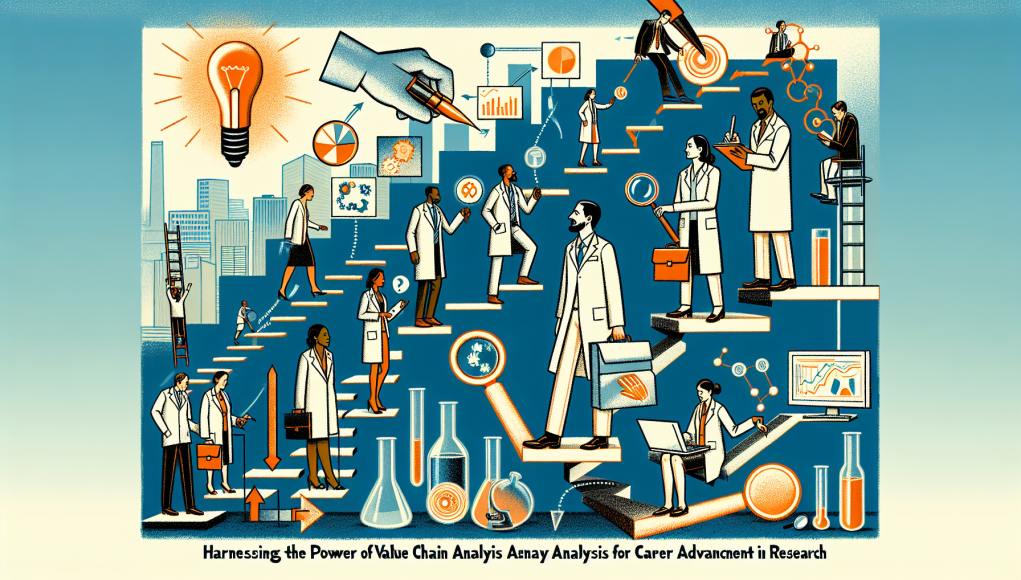Harnessing the Power of Value Chain Analysis for Career Advancement in Research
In the rapidly evolving landscape of research, where the boundaries of science and technology are constantly pushed, research professionals face the challenge of not only contributing to their fields but also navigating their careers toward growth and excellence. This journey often requires strategic insights and tools that are traditionally associated with the business sector. One such powerful tool is Value Chain Analysis, a concept extensively utilized in business for enhancing operational efficiency and competitive advantage but equally valuable for the research community.
Understanding Value Chain Analysis
Originally introduced by Michael Porter in the mid-1980s, Value Chain Analysis (VCA) is used to identify and optimize the series of activities that contribute to creating and delivering a valuable product or service. In a traditional business setting, it involves examining each step from raw material acquisition to customer delivery, identifying areas for improvement that can enhance productivity and value addition.
For research professionals, the value chain takes a slightly different form but remains fundamentally about enhancing value. It begins with idea generation and moves through stages such as grant application, experimentation, publication, and dissemination of findings. Each of these phases can be optimized for greater efficiency and impact, directly contributing to career advancement.
Applying VCA to Enhance Research Careers
1. Idea Generation and Planning
Generating innovative ideas is akin to mining the raw material in a value chain. Here, research professionals must cultivate a mindset of curiosity and critical thinking. Networking with peers, attending conferences, and staying abreast of emerging trends can offer raw data and inspiration for groundbreaking research ideas. The strategic planning of these ideas into actionable research proposals is the next crucial step.
2. Grant Application and Funding
Securing funding is essential for any research project. Effective value chain analysis in this phase involves understanding the priorities of funding bodies and aligning your research objectives with these priorities. Building relationships with program officers and peers who have successfully obtained grants can provide insights and improve your chances of success.
3. Experimentation and Data Collection
During this phase, the focus should be on optimizing the efficiency and reliability of experimental processes. Identifying bottlenecks and redundancies in data collection and analysis can significantly enhance productivity. Incorporating cutting-edge technology and methodologies can also add value, making your work more attractive and relevant to the academic and corporate sectors.
4. Publication and Dissemination
Publishing research is a crucial step in the academic value chain. Selecting the right journals, understanding their impact factors, and tailoring submissions to match their editorial standards can define the success of your work. Moreover, actively disseminating your findings through public talks, webinars, and social media platforms can expand your reach and establish you as a thought leader.
The Impact on Career Development
By systematically applying value chain analysis to each aspect of their work, research professionals can uncover hidden efficiencies and opportunities, leading to enhanced career growth. Improved project outcomes, increased funding success rates, and broader dissemination of research findings pave the way for recognition and leadership opportunities in their respective fields.
Furthermore, engaging with value chain analysis fosters a strategic perspective, equipping research professionals with skills that are recognized and valued beyond academia, such as project management, strategic planning, and stakeholder engagement.
Conclusion
Value Chain Analysis offers a structured framework that research professionals can leverage to navigate their career paths with precision and clarity. By integrating this approach into their professional routines, they not only contribute to creating impactful research but also position themselves as forward-thinking leaders in their fields.
Embrace the potential of Value Chain Analysis today and unlock new dimensions of career excellence in the dynamic world of research.




























